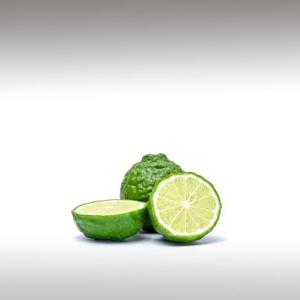
BERGAMOT ESSENTIAL OIL (CITRUS AURANTIUM SSP BERGAMIA) - ESSENTIAL OILS

BASE / GENERAL DATA
Information submited: May 1, 2014 Modified: February 16, 2015 By: OperaDreamhouse
Botanical Name: Citrus autarium ssp Bergamia
Botanical Origin: South East Asia
Common Method of Extraction: Ripe and unripe fruit peel
Part Typically Used: Cold expression (cold pressed)
Color: From green to greenish-yellow
Consistency: Watery viscosity
Perfumery Note: Top
Shelf Life: 2 - 3 years
Strength of Initial Aroma: Basically citrus, fruity and sweet, with a warm spicy floral quality and is reminiscent of neroli as well as lavender oil.
Blends Well With: Black pepper, clary sage, cypress, frankincense, geranium, jasmine, mandarin, nutmeg, orange, rosemary, sandalwood, vetiver, ylang-ylang, lavender, neroli essential oils.
Common name: Bergamot orange
Chemical structure: A-pinene, myrcene, limonene, a-bergaptene, b-bisabolene, linalool, linalyl acetate, nerol, neryl acetate, geraniol, geraniol acetate and a-terpineol.
Note: Bergamot oil must be protected from sunlight, because bergaptene, one of its components, becomes poisonous if exposed to sunlight. That is why the oil should always be stored in dark bottles in dark places.
The scientific name of bergamot is Citrus aurantium var. or Citrus Bergamia. It is a tropical plant, but thrives in Europe as well. Its powerful aroma makes it a popular component in many perfumes, and it is often used as the all-important “top note”.
Bergamot essential oil is amongst the more expensive of the cold pressed citrus oils, but is well worth the cost. Its aroma is reminiscent to that of orange, but it is more complex and almost has an underlying floral characteristic to it.
Bergamot essential oil is extracted from the fruit of a small tree. This tree is native to South East Asia, but was introduced to Europe, and particularly Italy and is also found in the Ivory Coast, Morocco, Tunisia and Algeria.
The word bergamot is etymologically derived from the Italian word "bergamotto". It is related to French bergamote, from Italian bergamotto, of Turkish origin: beg-armudi or beg armut ("prince's pear" or "prince of pears"). The most plausible theory regarding its source claims that Christopher Columbus brought the bergamot tree back on a voyage from the Canary Islands to Barcelona, Spain.
From Spain it was introduced into the Italian city of Bergamo, Lombardy, where the oil is reported to have been first produced.
Citrus bergamia is a small tree that blossoms during the winter. The juice tastes less sour than lemon, but more bitter than grapefruit. Bergamot essential oil is extracted from the fruit of a small tree.
A citrus tree (Citrus aurantium) is grow up to four meters high, with star-shaped flowers and smooth leaves, bearing citrus fruit resembling a cross between an orange and a grapefruit, but in a pear-shape. The fruit ripens from green to yellow.
The bergamot orange is unrelated to the herbs known as bergamot or wild bergamot, Monarda didyma and Monarda fistulosa, which are in the mint family, and are named for their similar aroma.
Citrus bergamia has also been classified as Citrus aurantium subsp. bergamia (subspecies of bitter orange). Citrus bergamia is sometimes confused but is not the same as Citrus medica (citron, the yellow fruit of which is also known as etrog) or Citrus limetta ("sweet lemon" or "sweet lime").
Trees do not bear any fruit until 3 years after grafting, by which time the tree will be 6 or 7 years old. Initially, a tree will bear 20 to 30 fruits, and at full maturity 12 years later it can produce up 300 fruits. After 15 years each tree can produce around 1 kilo of essential oil and will remain productive until the age of 70 or 80 when it reaches the end of its industrious life.
The essential oil is obtained by cold expression of the peel which produces a beautiful dark green oil with a delightful fresh, citrusy top note and sweet, herbal-peppery heart notes.
Botanical Origin: South East Asia
Common Method of Extraction: Ripe and unripe fruit peel
Part Typically Used: Cold expression (cold pressed)
Color: From green to greenish-yellow
Consistency: Watery viscosity
Perfumery Note: Top
Shelf Life: 2 - 3 years
Strength of Initial Aroma: Basically citrus, fruity and sweet, with a warm spicy floral quality and is reminiscent of neroli as well as lavender oil.
Blends Well With: Black pepper, clary sage, cypress, frankincense, geranium, jasmine, mandarin, nutmeg, orange, rosemary, sandalwood, vetiver, ylang-ylang, lavender, neroli essential oils.
Common name: Bergamot orange
Chemical structure: A-pinene, myrcene, limonene, a-bergaptene, b-bisabolene, linalool, linalyl acetate, nerol, neryl acetate, geraniol, geraniol acetate and a-terpineol.
Note: Bergamot oil must be protected from sunlight, because bergaptene, one of its components, becomes poisonous if exposed to sunlight. That is why the oil should always be stored in dark bottles in dark places.
The scientific name of bergamot is Citrus aurantium var. or Citrus Bergamia. It is a tropical plant, but thrives in Europe as well. Its powerful aroma makes it a popular component in many perfumes, and it is often used as the all-important “top note”.
Bergamot essential oil is amongst the more expensive of the cold pressed citrus oils, but is well worth the cost. Its aroma is reminiscent to that of orange, but it is more complex and almost has an underlying floral characteristic to it.
Bergamot essential oil is extracted from the fruit of a small tree. This tree is native to South East Asia, but was introduced to Europe, and particularly Italy and is also found in the Ivory Coast, Morocco, Tunisia and Algeria.
The word bergamot is etymologically derived from the Italian word "bergamotto". It is related to French bergamote, from Italian bergamotto, of Turkish origin: beg-armudi or beg armut ("prince's pear" or "prince of pears"). The most plausible theory regarding its source claims that Christopher Columbus brought the bergamot tree back on a voyage from the Canary Islands to Barcelona, Spain.
From Spain it was introduced into the Italian city of Bergamo, Lombardy, where the oil is reported to have been first produced.
Citrus bergamia is a small tree that blossoms during the winter. The juice tastes less sour than lemon, but more bitter than grapefruit. Bergamot essential oil is extracted from the fruit of a small tree.
A citrus tree (Citrus aurantium) is grow up to four meters high, with star-shaped flowers and smooth leaves, bearing citrus fruit resembling a cross between an orange and a grapefruit, but in a pear-shape. The fruit ripens from green to yellow.
The bergamot orange is unrelated to the herbs known as bergamot or wild bergamot, Monarda didyma and Monarda fistulosa, which are in the mint family, and are named for their similar aroma.
Citrus bergamia has also been classified as Citrus aurantium subsp. bergamia (subspecies of bitter orange). Citrus bergamia is sometimes confused but is not the same as Citrus medica (citron, the yellow fruit of which is also known as etrog) or Citrus limetta ("sweet lemon" or "sweet lime").
Trees do not bear any fruit until 3 years after grafting, by which time the tree will be 6 or 7 years old. Initially, a tree will bear 20 to 30 fruits, and at full maturity 12 years later it can produce up 300 fruits. After 15 years each tree can produce around 1 kilo of essential oil and will remain productive until the age of 70 or 80 when it reaches the end of its industrious life.
The essential oil is obtained by cold expression of the peel which produces a beautiful dark green oil with a delightful fresh, citrusy top note and sweet, herbal-peppery heart notes.

SPIRITUAL PRACTISES DATA
Information submited: May 1, 2014 Modified: February 16, 2015 By: OperaDreamhouse
The benefits of bergamot include the spiritual and emotional as well. Bergamot releases the need to be in complete control so that we can flow with life more easily. Because this oil opens the heart chakra and is uplifting to the mind, which eases stress and tension in mind, body and soul. Place on the heart to release this patterning and embrace relationships (self and others).
It promotes opening solar plexus and heart chakras:
Third Chakra: solar plexus - Bergamot essential oil helps support the digestive tract, which helps instill confidence in one’s being. Bergamot also relieves pressure from the adrenal glands by relieving tension from the nerves.
Seventh chakra: the crown chakra - Bergamot essential oil assists with the release of negative thoughts and emotions, such as fear, guilt, and unworthiness. This release is important for one to achieve ultimate crown chakra opening through meditation or other spiritual connection.
It promotes opening solar plexus and heart chakras:
Third Chakra: solar plexus - Bergamot essential oil helps support the digestive tract, which helps instill confidence in one’s being. Bergamot also relieves pressure from the adrenal glands by relieving tension from the nerves.
Seventh chakra: the crown chakra - Bergamot essential oil assists with the release of negative thoughts and emotions, such as fear, guilt, and unworthiness. This release is important for one to achieve ultimate crown chakra opening through meditation or other spiritual connection.

MEDICINE / HEALTH DATA
Information submited: May 1, 2014 Modified: February 16, 2015 By: OperaDreamhouse
Therapeutic Properties:
Analgesic
Antidepressant
Antiseptic
Antibiotic
Anti-spasmodic
Stomachic
Calmative
Cicatrisant
Deodorant
Digestive
Febrifuge
Vermifuge
Vulnerary
Fields of application: Bergamot oil can be used in the treatment of depression, stress, tension, fear, hysteria, infection (all types including skin), anorexia, psoriasis, eczema, general convalescence, for relaxed and happy feeling, relieving urinary tract infections, boosting the liver, spleen and stomach, while fighting oily skin, acne, cold sores.
Contraindications: Bergamot oil can cause burns when used on a sensitive skin which is then exposed to sunlight, as the high content of bergaptene can cause photo-toxicity. It is advisable to keep out of the sun if this oil is used on the skin. Even when the ingredient Bergaptene (Furocoumarin) is removed from the oil and photo toxicity is therefore minimized, it is still advisable to keep treated skin out of the sun, and to use it in concentrations of less than 1 %. Bergapten is that material, which causing skin photosensibility (increased skin sensitivity to sunlight, which affects the pigmentation spots in contact with essential oils in that particular site).
Pregnancy / Lactation: Avoid during pregnancy and breast-feeding.
Children: Bergamot essential oil is a phototoxic. Do not use on children younger than 5 years of age. In older years children like very much bergamot essential oil smell. We find that children especially find Bergamot enjoyable.
Guidelines: Do not expose skin to sunlight for 12 hours after application.
The fruit and essential oil have been used in folk medicine since the 16th century, initially in Italy and then later throughout Europe as its popularity began to spread. At first it was employed for its antiseptic properties and its ability to reduce a fever, and later during Napoleonic times it became popular as a fragrance. It is still used today in high class perfumes.
The use of bergamot essential oil with bergaptenu is increased sensitivity of the skin to UV rays on the weight of the coumarin: bergamotino and bergapteno. For that reason, in massage and cosmetic formulas is better to use bergamot essential oil without bergapteno, of course, smell is not as rich as pure bergamot oil.
The components of bergamot oil, like alpha pinene and limonene, are antidepressant and stimulating in nature. They create a feeling of freshness, joy and energy in cases of sadness and depression by improving the circulation of the blood. They also stimulate hormonal secretions, thereby helping to maintain proper metabolic rates.
Certain components of the essential oil of Bergamot are antibiotic and disinfectant in nature. They inhibit the growth of germs, virus and fungi. They also effectively prohibit infections, including those of the skin.
Bergamot essential oil reduces the feeling of pain in the body. It stimulates secretion of certain hormones which lessen sensitivity of nerves to pain. Therefore, it is very helpful in case of headaches, sprains, muscle aches or any other symptoms or ailments which require a heavy dosage of analgesic pills.
The flavonoids present in bergamot oil are very good relaxants as well. They soothe nerves and reduce nervous tension, anxiety, and stress, all of which can help cure or treat ailments associated with stress such as sleeplessness, high blood pressure, insomnia, and depression.
As discussed above, bergamot essential oil activates and increases secretions of the digestive acids, enzymes and bile and facilitates digestion. It also synchronizes and regulates the peristaltic motion of the intestines and in this way, it quickens the digestive process and reduces strain to the intestinal tract. In this way, bergamot essential oil can reduce constipation, make bowel movements more regular, and prevent gastrointestinal complications like colorectal cancer and other uncomfortable or dangerous conditions.
Bergamot is an antibiotic, it fights infections that arise from viruses, bacteria and protozoa that cause fever, including influenza (virus), malaria (protozoa) and typhoid (typhus bacteria). It stimulates the metabolic system and gland secretions, thereby providing a feeling of warmth and resulting in additional secretion (perspiration or sweat) from the Eccrine glands (sweat glands) and sebaceous (sebum) glands, thus reducing body temperature.
It relaxes nerves and muscles, thereby giving quick relief for cramps, convulsions, and painful muscle contractions. This can also be important for people with chronic coughing or respiratory conditions, as well as asthma, which is similar to a spasmodic reaction.
Bergamot essential oil is also a tonic, meaning that it tones up the respiratory, circulatory, digestive, excretory, and nervous system, as well as skin and muscles. It is also anticongestive and is used in vaporizers to relieve congestion and respiratory problems, particularly during coughs and colds.
Many aromatherapy books recommend using 1 drop of undiluted bergamot essential oil on insect bites and cold sores because of its excellent antiseptic and healing properties.
This essentia oil is helpful when dealing with dependency or compulsiveness that may be associated with smoking, drugs or alcohol.
According to the ancient healing system of Ayurveda, bergamot essential oil decreases problems caused by Vata and Kapha (the biological forces of wind and phlegm). By balancing "phlegm", bergamot oil helps to reduce sluggishness, complacency and melancholy. Its mood-uplifting qualities support heightened and brightened energy.
Analgesic
Antidepressant
Antiseptic
Antibiotic
Anti-spasmodic
Stomachic
Calmative
Cicatrisant
Deodorant
Digestive
Febrifuge
Vermifuge
Vulnerary
Fields of application: Bergamot oil can be used in the treatment of depression, stress, tension, fear, hysteria, infection (all types including skin), anorexia, psoriasis, eczema, general convalescence, for relaxed and happy feeling, relieving urinary tract infections, boosting the liver, spleen and stomach, while fighting oily skin, acne, cold sores.
Contraindications: Bergamot oil can cause burns when used on a sensitive skin which is then exposed to sunlight, as the high content of bergaptene can cause photo-toxicity. It is advisable to keep out of the sun if this oil is used on the skin. Even when the ingredient Bergaptene (Furocoumarin) is removed from the oil and photo toxicity is therefore minimized, it is still advisable to keep treated skin out of the sun, and to use it in concentrations of less than 1 %. Bergapten is that material, which causing skin photosensibility (increased skin sensitivity to sunlight, which affects the pigmentation spots in contact with essential oils in that particular site).
Pregnancy / Lactation: Avoid during pregnancy and breast-feeding.
Children: Bergamot essential oil is a phototoxic. Do not use on children younger than 5 years of age. In older years children like very much bergamot essential oil smell. We find that children especially find Bergamot enjoyable.
Guidelines: Do not expose skin to sunlight for 12 hours after application.
The fruit and essential oil have been used in folk medicine since the 16th century, initially in Italy and then later throughout Europe as its popularity began to spread. At first it was employed for its antiseptic properties and its ability to reduce a fever, and later during Napoleonic times it became popular as a fragrance. It is still used today in high class perfumes.
The use of bergamot essential oil with bergaptenu is increased sensitivity of the skin to UV rays on the weight of the coumarin: bergamotino and bergapteno. For that reason, in massage and cosmetic formulas is better to use bergamot essential oil without bergapteno, of course, smell is not as rich as pure bergamot oil.
The components of bergamot oil, like alpha pinene and limonene, are antidepressant and stimulating in nature. They create a feeling of freshness, joy and energy in cases of sadness and depression by improving the circulation of the blood. They also stimulate hormonal secretions, thereby helping to maintain proper metabolic rates.
Certain components of the essential oil of Bergamot are antibiotic and disinfectant in nature. They inhibit the growth of germs, virus and fungi. They also effectively prohibit infections, including those of the skin.
Bergamot essential oil reduces the feeling of pain in the body. It stimulates secretion of certain hormones which lessen sensitivity of nerves to pain. Therefore, it is very helpful in case of headaches, sprains, muscle aches or any other symptoms or ailments which require a heavy dosage of analgesic pills.
The flavonoids present in bergamot oil are very good relaxants as well. They soothe nerves and reduce nervous tension, anxiety, and stress, all of which can help cure or treat ailments associated with stress such as sleeplessness, high blood pressure, insomnia, and depression.
As discussed above, bergamot essential oil activates and increases secretions of the digestive acids, enzymes and bile and facilitates digestion. It also synchronizes and regulates the peristaltic motion of the intestines and in this way, it quickens the digestive process and reduces strain to the intestinal tract. In this way, bergamot essential oil can reduce constipation, make bowel movements more regular, and prevent gastrointestinal complications like colorectal cancer and other uncomfortable or dangerous conditions.
Bergamot is an antibiotic, it fights infections that arise from viruses, bacteria and protozoa that cause fever, including influenza (virus), malaria (protozoa) and typhoid (typhus bacteria). It stimulates the metabolic system and gland secretions, thereby providing a feeling of warmth and resulting in additional secretion (perspiration or sweat) from the Eccrine glands (sweat glands) and sebaceous (sebum) glands, thus reducing body temperature.
It relaxes nerves and muscles, thereby giving quick relief for cramps, convulsions, and painful muscle contractions. This can also be important for people with chronic coughing or respiratory conditions, as well as asthma, which is similar to a spasmodic reaction.
Bergamot essential oil is also a tonic, meaning that it tones up the respiratory, circulatory, digestive, excretory, and nervous system, as well as skin and muscles. It is also anticongestive and is used in vaporizers to relieve congestion and respiratory problems, particularly during coughs and colds.
Many aromatherapy books recommend using 1 drop of undiluted bergamot essential oil on insect bites and cold sores because of its excellent antiseptic and healing properties.
This essentia oil is helpful when dealing with dependency or compulsiveness that may be associated with smoking, drugs or alcohol.
According to the ancient healing system of Ayurveda, bergamot essential oil decreases problems caused by Vata and Kapha (the biological forces of wind and phlegm). By balancing "phlegm", bergamot oil helps to reduce sluggishness, complacency and melancholy. Its mood-uplifting qualities support heightened and brightened energy.

BEAUTY / COSMETICS DATA
Information submited: May 1, 2014 Modified: February 16, 2015 By: OperaDreamhouse
Bergamot essential oil has antibacterial, deodorising, refreshing, soothing, and uplifting properties which make it excellent for body skincare preparations, for ensuring healthy and vital skin. Bergamot essential oil has a fresh, citrus and slightly spicy aroma and is powerfully refreshing, uplifting and invigorating and helps maintain a balanced mood.
This property of bergamot oil is the reason behind its extensive use in cosmetics and skin care products such as beauty soaps, creams, and lotions. Cicatrisant means a property or an agent which helps scars and other marks on the skin to disappear. It also makes the distribution of pigments and melanin even and uniform, resulting in the fading away of marks and an even, attractive skin tone. This essential oil is commonly used to eliminate the unsightly effects of acne, which can leave noticeable scars and marks on the affected areas for many years.
Bergamot essential oil supports healthy skin.
This property of bergamot oil is the reason behind its extensive use in cosmetics and skin care products such as beauty soaps, creams, and lotions. Cicatrisant means a property or an agent which helps scars and other marks on the skin to disappear. It also makes the distribution of pigments and melanin even and uniform, resulting in the fading away of marks and an even, attractive skin tone. This essential oil is commonly used to eliminate the unsightly effects of acne, which can leave noticeable scars and marks on the affected areas for many years.
Bergamot essential oil supports healthy skin.

FOOD / COOKING DATA
Information submited: May 1, 2014 Modified: February 16, 2015 By: OperaDreamhouse
Bergamot essential oil drops are using in black tea. The inclusion of bergamot essential oil in regular black tea is then given a different name - Earl Grey.
COMMENTS
No comments.
Newest mixtures containing Bergamot Essential Oil (Citrus Aurantium ssp Bergamia):

Exotic - smelling body scrub
July 11, 2015


